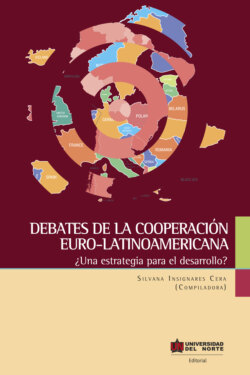Читать книгу Debates de la cooperación latinoamericana - Silvana Insignares Cera - Страница 8
INTRODUCTION
ОглавлениеThe influx of refugees coming to Europe has increased in the last years and led to new political challenges. Discussions between different national governments on the access of refugees, the construction of new walls and the reintroduction of pass controls within the member states of the European Union demonstrate the importance of these issues for the European integration process. The management of the refugees coming to the European Union can be seen also a litmus test for the future of the European Union. Is the European Union developing towards “fortress Europe” and is based on exclusion, or does the European Union evolves leadership and responsibility in a globalized world, where crisis do not end at the frontiers of the European Union. “What is Europe?” and “what is the European Union?” are complex questions which can be answered in different ways and on different levels. The approach of this article is to focus on the urban level as European cities are major targets of migration movements. The question of how cities deal with refugees tells us a lot about how integration actually takes place on a local level and how European societies function. Besides aspects such as education, health and labor markets, the issue of how to host refugees has become an important topic in European Cities. Until now a multitude of different political approaches, ranging from temporary to long-term housing options, from centralized to decentralized approaches has been developed. The decision on which approach is suitable is foremost made by municipalities but influenced also by the interplay of various actors, such as European, national and federal state institutions, property owners, construction firms, NGOs, migrant communities and civil society. Furthermore, the current structures of local housing markets and land uses have an impact on how to host refugees. In this article I present the city of Leipzig in Eastern Germany as a case study. It is analyzed which political responses on how to host refugees have been developed on the local level in the last years and what governance forms were applied.
The aim of this paper is to compare the current policies in Leipzig with social science based approaches on the concept of the “European City”. A huge body of literature on the European City has been evolved during the first decade of the 2000s (for example Le Galès 2002, Marcuse 2004, Häußermann 2011, Siebel 2004, Frey/Koch 2011, Clos 2005, Lenger 2007, Lawton/Punch 2014, Bagnasco/LeGalès 2000). The general objective of this article is to understand whether the principles of the European City are also identifiable in contemporary policies on hosting refugees or if opposing political approaches are developed. With this paper, I aim to contribute to the general debate on the future character of the European Union and reveal whether the current situation requires rethinking theoretical concepts on how different social groups live in European cities.
